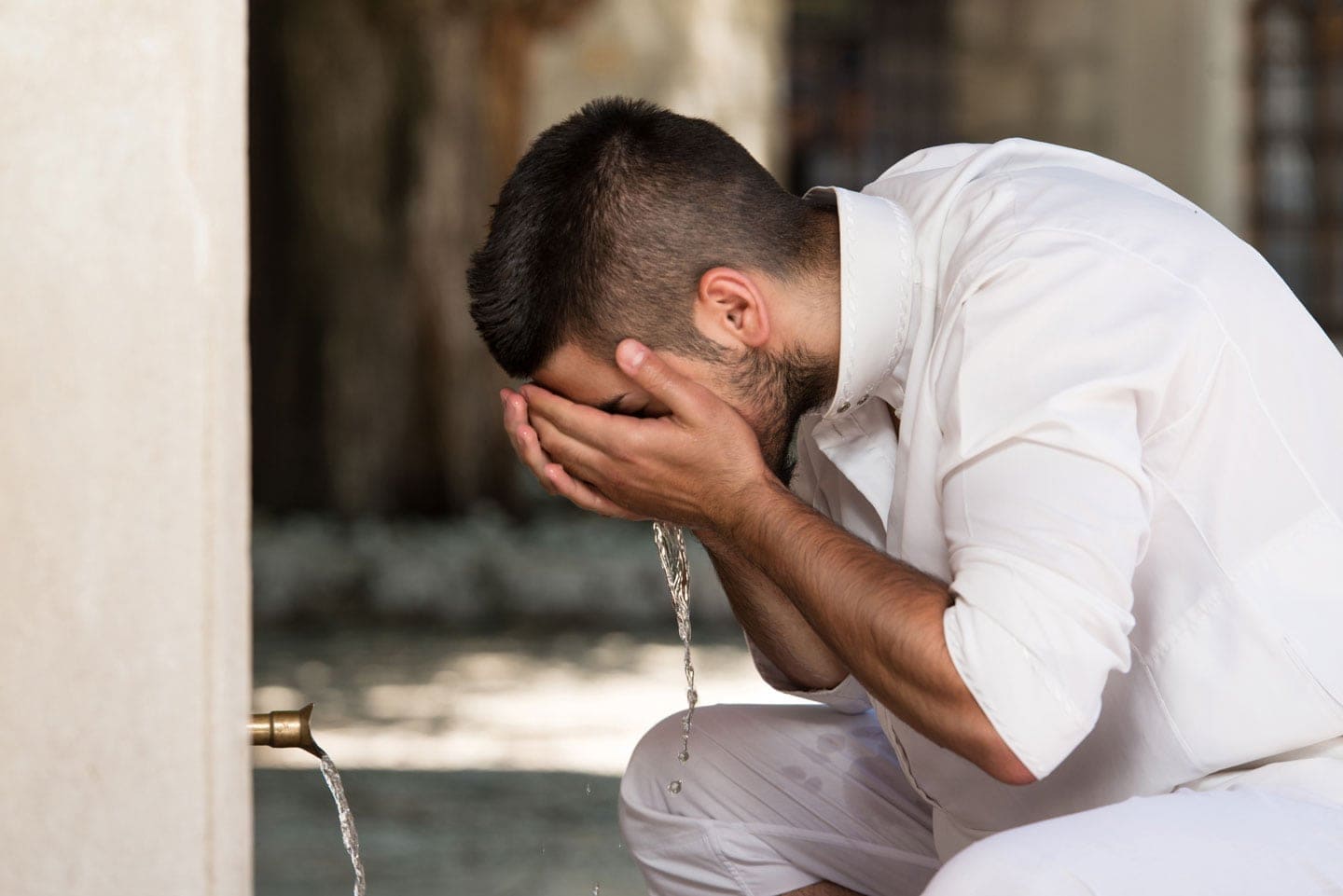What Can One Do to Avoid Taking the Dispensation of Excused Person?
Hanafi Fiqh
Answered by Shaykh Yusuf Weltch
Question
Must I wait 10 minutes before performing ablution if that’s the only way to perform the wudu and prayer without taking the dispensation of the excused person?
Answer
In the Name of Allah, the Most Merciful and Compassionate.
The rulings of the excused person are based on the undue difficulty and/or inability to perform the prayer with a complete ablution.
This is based on the principle “Necessities (sometimes) permit prohibited actions” and the principle “Necessities are dealt with to the extent of the need.” [Ibn Nujaym, al-Ashbah wa al-Naza’ir]
Applying the Principles to the Circumstance at Hand
If someone with an excuse that makes purification unduly difficult can stop their excuse by moderate means, (a) they are obliged to and (b) they will no longer be considered an excused person. [Maydani, al-Lubab fi Sharh al-Kitab]
For example:
- If a woman has irregular bleeding such that ablution is unduly difficult (according to the rulings of the excused person), she is excused. However, if she can stop the bleeding by placing a cotton pad at the vaginal opening so that no blood can exit the body’s surface, she must do so and is thus no longer excused.
- If one cannot perform the ablution due to incontinence of urine, they are excused. However, if they can stop the drips of urine by walking around first or by praying sitting down, or the like (of moderate means) – they are obliged to, and they are no longer excused.
Your Situation
In your case, if you can avoid the need for dispensations by waiting for 10 mins, this becomes an obligation. One is only excused when their issue is un-avertable.
Related:
The Fiqh of Chronic Excuses and Ablution
What Is the Ruling regarding Excused Person?
Excused Person Archives
Hope this helps
Allah knows best
[Shaykh] Yusuf Weltch
Checked and Approved by Shaykh Faraz Rabbani
Shaykh Yusuf Weltch teaches Arabic, Islamic law, and spirituality. After accepting Islam in 2008, he completed four years at the Darul Uloom seminary in New York, where he studied Arabic and the traditional sciences.
He then traveled to Tarim, Yemen, where he studied for three years in Dar al-Mustafa under some of the most outstanding scholars of our time, including Habib Umar Bin Hafiz, Habib Kadhim al-Saqqaf, and Shaykh Umar al-Khatib.
In Tarim, Shaykh Yusuf completed the memorization of the Quran and studied beliefs, legal methodology, hadith methodology, Quranic exegesis, Islamic history, and several texts on spirituality. He joined the SeekersGuidance faculty in the summer of 2019.
